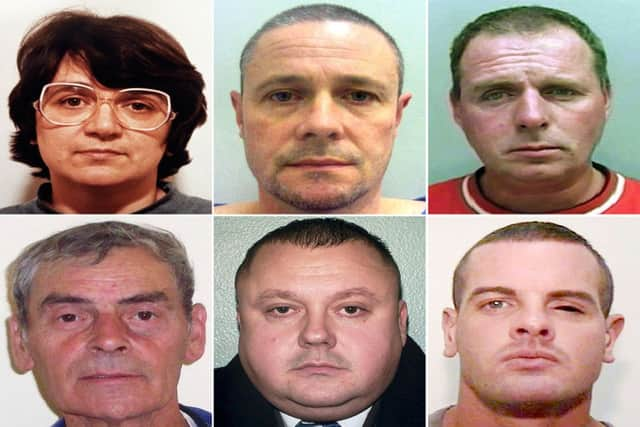Whole-life sentences for most dangerous criminals


The ruling also means Michael Adebolajo and Michael Adebowale, the murderers of British soldier Lee Rigby, can now be sentenced.
Their cases, and others, were put on hold while a specially constituted court determined whether “life means life” jail terms were compatible with the European Convention on Human Rights (ECHR).
Advertisement
Hide AdAdvertisement
Hide AdTheir ruling also means the UK government avoids another confrontation with Strasbourg, following disagreements over issues like prisoner voting.


Scots law did not face the same challenge as its equivalent sentence – an order of lifelong restriction – has a minimum term after which the prisoner will be assessed.
The panel of five judges at the Court of Appeal also increased the “unduly lenient” 40-year minimum being served by killer Ian McLoughlin, who murdered a man while on day release, to a whole-life term. And they dismissed a challenge by Lee Newell, who murdered a child killer while in prison, against an order imposed in his case that he can never be released.
Giving the panel’s ruling, Lord Thomas said the court had held that the statutory scheme enacted by Parliament which enabled judges to pass whole-life orders was “entirely compatible” with the European Convention on Human Rights.
“Judges should therefore continue as they have done to impose whole-life orders in those rare and exceptional cases which fall within the statutory scheme,” he added.
“Under the statutory scheme as enacted by Parliament, the Secretary of State has power to release a prisoner on licence if he is satisfied that exceptional circumstances exist which justify the prisoner’s release on compassionate grounds.”
After the ruling, Attorney General Dominic Grieve, who referred the McLoughlin sentence to the court for review, said: “I am pleased that the Court of Appeal has today confirmed that those who commit the most heinous crimes can be sent to prison for the rest of their lives.”
Justice Secretary Chris Grayling added: “I think people in Britain will be glad that our courts have disagreed with the European Court of Human Rights, and upheld the law that the UK parliament has passed.”
Advertisement
Hide AdAdvertisement
Hide AdLast July, the European Court of Human Rights held that there had been a violation of Article 3 of the European Convention on Human Rights – which relates to inhuman and degrading treatment – on the basis that whole-life orders were not “reducible”. But the Court of Appeal disagreed by pointing to the “possible exceptional release of whole-life prisoners” clause.
Triple killer McLoughlin, 55, was jailed for life at the Old Bailey last October for stabbing a man on his first day-release from prison after 21 years in custody. When sentencing McLoughlin, the trial judge imposed a 40-year tariff, saying he could not pass a whole-life term because of the European court ruling.
McLoughlin – who had killed twice before – stabbed Graham Buck, 66, as he came to the aid of a neighbour in Little Gaddesden, Hertfordshire, last July.
In a letter written by McLoughlin to his lawyers explaining why he did not want representations made on his behalf, he said: “It is just that I believe I deserve the whole-life tariff which the AG [Attorney General] is seeking and that the family of Graham Buck deserves to know officially that I will never be released.”
Newell, now 45, who murdered child killer Subhan Anwar, challenged a whole-life sentence imposed last September at Warwick Crown Court.
In his case, Lord Thomas said: “There was no mitigation. This was a murder where the seriousness of the offence was exceptionally high.
“The judge was right in making a whole-life order. This appeal is dismissed.”
Former home secretary David Blunkett, who was responsible for steering through the 2003 Act that introduced whole-life tariffs, welcomed the ruling.
He said: “Judges are not prepared to simply bow down to the rulings of Strasbourg.”